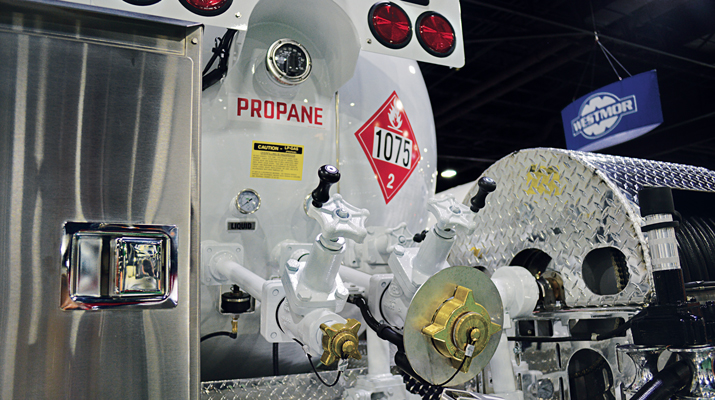Republican victory changes landscape on energy, environmental issues
Predicting a legislative agenda soon after a mid-term election is anyone’s guess, as the winners make claims of a mandate for action, while the losers deny a mandate exists.
This election was no different. Republicans exclaimed that their victory was the result of a clear message from voters opposing President Barack Obama’s policies, while Democrats claimed the losses were the result of having to defend too many seats and low turnout among key constituencies.
Through the chest-thumping of the GOP and the attempted rationalization of the Democrats, there were signals that an agenda might emerge around some energy, budget and tax issues. However, no sooner had a semblance of an agenda emerged than the left and right wings of the parties began to make trouble.
So will this be the pattern for the next two years, or will Senate Majority Leader-elect Mitch McConnell, R-Ky., and House Speaker John Boehner, R-Ohio, be able to ride herd over their caucuses and restore more deliberative policymaking known as “regular order,” as both claimed was their goal?
In the Senate, Republicans exceeded most expectations of the Washington handicapping class, ending up with a 54-46 majority (assuming Sen. Mary Landrieu, D-La., loses in the Louisiana election runoff), while the House Republicans made gains that moved their majority to levels unseen since the early part of the last century.
This newfound clout expressed itself in the lame-duck session that began in early November, when heavy political jockeying began over the Keystone XL Pipeline in the first hours of legislators’ return to Washington.
The House moved first when Rep. Bill Cassidy, R-La., the runoff opponent to Landrieu, took Landrieu’s Keystone bill and introduced it. The bill passed overwhelmingly. Senate Majority Leader Harry Reid, D-Nev., then brought Landrieu’s bill to the floor for a vote despite its unknown outcome.
This put Obama in a tough spot. If the bill passed and he signed it, both Cassidy and Landrieu would claim victory while environmental groups howled. Or, Obama could veto the bill, making environmentalists happy while giving Cassidy an issue for the runoff.
In the end, the lame-duck, Democratic-controlled Senate failed to reach the 60 votes necessary to allow the motion to proceed for a final vote. The measure failed with 59 votes in favor and 41 in opposition.
On the substance of the energy and environmental issues related to the Keystone project, these legislative attempts were more for show. The reality is that it’s been six years since TransCanada filed a petition with the U.S. Department of State to build its pipeline from Canada to transport its crude oil to refineries in Louisiana. While America continues to import more than 9 million barrels of oil a day (mbd), according to the U.S. Energy Information Administration, a lot has changed since that petition was filed.
U.S. oil production from shale formations has increased to the tune of 3 mbd, and a significant increase in pipeline and rail capacity to transport crude and refined products is under way. So regardless of the Keystone, oil is finding its way to the Gulf of Mexico.
While Obama did not support the bill, he did not indicate if he would veto it. And because the bill did not see a final vote in the Senate, he dodged having to make his intentions clear.
After the Senate vote, McConnell said he would raise the issue in January when the new Congress convenes under his leadership. If McConnell does raise the issue, he may have enough votes to force Obama’s hand.
Another pressing and arguably more important issue is that by Dec. 11, the lame-duck Congress must pass a funding bill for the federal government or there will be another government shutdown. McConnell addressed the business community’s fears of a shutdown following his re-election.
“We will not be shutting the government down or threatening to default on the federal debt,” he said.
McConnell also expressed interest in extending various expired tax provisions. He has since reiterated his promise, and many think he is likely to carry the day despite the rhetoric of the far right wing of his party that is threatening to use a shutdown as leverage against the president if he moves to make changes to immigration rules via executive order.
All this and the new Congress has not even begun. What happened to regular order?
Lisa Bontempo was a longtime energy lobbyist, including 13 years with National Propane Gas Association. She remains involved in national politics and can be reached at lisabontempo@msn.com.
















